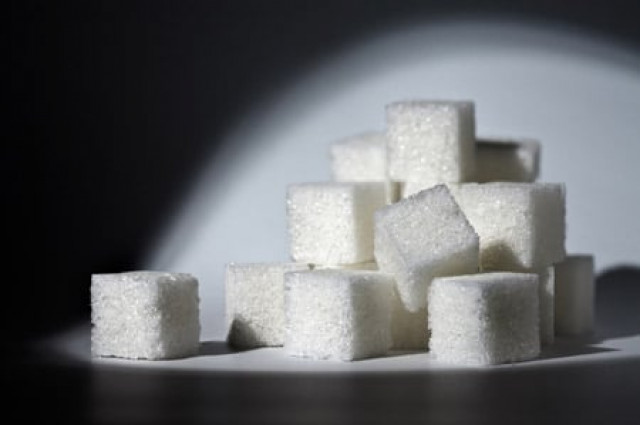ECC allows 0.2m tons sugar export without subsidy
Allocates 200 mmcfd of gas from PPL’s field to Guddu power station, approves Rs224.8b wheat purchase drive

PHOTO: REUTERS
Earlier, the ECC had permitted in December 2016 export of 225,000 tons by the end of March 2017.
Sugar mill association condemns statement on sugar exports
The fresh decision came in a meeting of the ECC held on Tuesday under the chairmanship of Finance Minister Ishaq Dar.
According to a statement, the committee discussed and approved a proposal of the Ministry of Commerce for further export of 200,000 tons of sugar without provision of any subsidy.
Shipments will be made within 60 days after the approval of export quota by the State Bank of Pakistan or by May 31, 2017, whichever is earlier. Only those mills will be allowed to make exports which have cleared dues of farmers for the previous season and have processed sugarcane at optimum capacity.
In December 2016, the ECC had allowed sugar export with the condition that an inter-ministerial committee, headed by Commerce Minister Khurram Dastgir, would recommend a halt to further exports if domestic sugar prices were found to be negatively impacted.
Later, the Pakistan Sugar Mills Association (PSMA) requested for extension in the time frame from March 31 to May-end and also sought an increase in export quantity. The matter was sent to the Sugar Advisory Board (SAB) for advice.
The inter-ministerial committee made its recommendations after reviewing the request of PSMA and input provided by SAB.
In the light of these recommendations, the ECC gave the go-ahead to extending the time frame and enhancing the export volume. The committee, however, cautioned that it would keep a close watch on domestic price movements and would suspend exports if the local market was adversely impacted.
Gas supply
The ECC also considered a proposal for the allocation of gas from Pakistan Petroleum Limited (PPL)’s Kandhkot field and agreed on the supply of 150 million cubic feet per day (mmcfd) to Thermal Power Station Guddu.
PPL will supply an additional 50 mmcfd to the power station from the start of June or the date of commissioning of the power station’s new pipeline, whichever is earlier.
The supply of the entire 200 mmcfd will be subject to a minimum 72.5% take-or-pay quantity.
Responding to a proposal of the Revenue Division, the ECC extended the period to June 30 for the imposition of reduced withholding tax at 0.4% on banking transactions above Rs50,000 by non-filers of income tax returns. The committee also agreed on the disbursement of December 2016 salary amounting to Rs380 million to the employees of Pakistan Steel Mills.
Boosting agriculture: Experts call for collaborative efforts
After deliberating on a proposal put forth by the Ministry of National Food Security and Research, the ECC permitted procurement of the 2016-17 wheat crop by public sector departments to meet the target of 7.05 million tons. An amount of Rs224.86 billion will be required to purchase the required quantity.
Wheat stocks kept in the public sector help augment supplies during lean periods and meet food requirements of the areas facing shortage.
Petroleum products
The ECC approved changes to the existing procedure for sampling and testing of imported petroleum products.
A laboratory of the Hydrocarbon Development Institute of Pakistan (HDIP) will check the product quality prior to its unloading.
HDIP will take samples in the presence of the importer’s surveyors. In case of quality dispute, re-sampling will be carried out by a third-party surveyor. The fresh sample will be tested in the presence of nominated representatives of the importer and HDIP by another independent laboratory approved by the Oil and Gas Regulatory Authority (Ogra). Test results will be final and binding.
Furthermore, Ogra will also independently take random samples from vessels carrying the imported petroleum products for testing through approved laboratories for effective monitoring, quality assurance and greater transparency.
Published in The Express Tribune, March 29th, 2017.
Like Business on Facebook, follow @TribuneBiz on Twitter to stay informed and join in the conversation.



















COMMENTS
Comments are moderated and generally will be posted if they are on-topic and not abusive.
For more information, please see our Comments FAQ